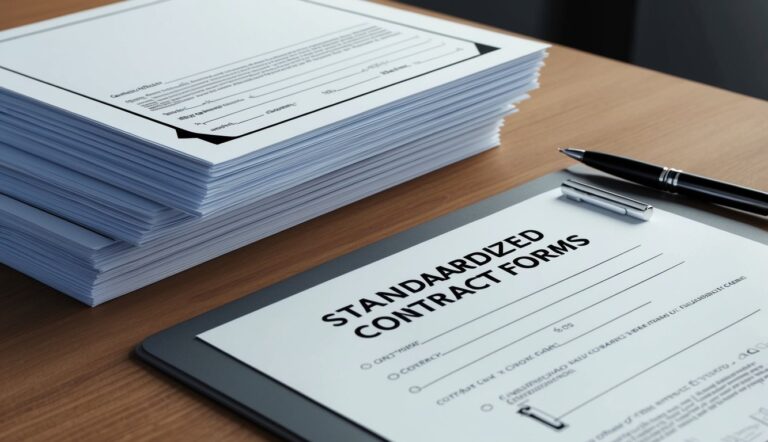What Does Professional Liability Insurance Mean?
Professional liability insurance is a type of coverage that protects professionals like architects, engineers, and lawyers against claims of negligence, misrepresentation, or errors and omissions.
These claims can arise if a client believes that your services caused them financial harm.
Unlike general liability insurance, which covers bodily injury and property damage, professional liability insurance focuses on professional mistakes. Errors and omissions insurance (E&O) is another term for this type of policy.
Key Features
- Coverage: Includes legal fees, court judgments, and settlements if you’re sued for negligence or mistakes.
- Claims-Made Basis: Coverage is only applicable for claims made while the policy is active.
- Deductibles: Common deductibles range from $1,000 to $25,000.
Professional Liability for Different Professions
- Architects and Engineers: Covers design errors or omissions.
- Medical Malpractice Insurance: Protects doctors against claims of medical negligence.
- Lawyers: Covers legal mistakes and malpractice claims.
Typical Claims
- Negligence: Failing to deliver professional services competently.
- Misrepresentation: Providing false information to clients.
- Copyright Infringement: Using copyrighted materials without permission.
Premiums
Premiums vary based on your profession, the risk level, and your coverage limits.
Higher deductibles often result in lower premiums.
Importance of Coverage
Having professional liability insurance shields your business from devastating financial repercussions.
Whether it’s defending against a groundless claim or paying for a legitimate error, this insurance ensures that legal fees and judgments don’t ruin your business.
Understanding the specifics of your policy, including any exclusions, is crucial for full protection.
Whether you are dealing with potential claims of misrepresentation or negligence, having the right insurance can make a significant difference.
Examples of Professional Liability Insurance in Practice

Doctors often need professional liability insurance, also known as malpractice insurance.
This insurance covers legal defense costs and settlements if a patient files a negligence claim against them.
Without this coverage, a lawsuit could be financially devastating.
Accountants also benefit from professional liability insurance.
It protects them against claims of errors or omissions in their work.
For example, if a mistake on a tax return leads to a client’s financial loss, professional liability insurance can cover the resulting damages.
Lawyers frequently use professional liability insurance to safeguard against malpractice claims.
Since legal practice involves a high standard, even a small error can lead to a costly lawsuit.
Insurance can cover defense costs and court judgments.
Engineers need this insurance to protect against claims related to structural failures.
If a project they design fails and causes property damage or bodily injury, the insurance helps cover the legal and settlement costs.
Insurance agents themselves carry professional liability insurance to protect against claims of misrepresentation.
If an agent incorrectly advises a client about a policy, leading to inadequate coverage, the insurance can help manage the financial repercussions.
Small business owners in various professional services, like consultants and designers, benefit from professional liability insurance.
It shields them from claims related to their services.
This is crucial as even small errors can result in costly legal actions or settlements.
Besides errors and omissions, businesses can face cybersecurity threats. Cyber liability insurance covers costs associated with data breaches.
This is especially important for companies handling sensitive customer information.
Quick Overview
- Doctors: Malpractice insurance for legal defense and settlements.
- Accountants: Protects against errors on financial documents.
- Lawyers: Malpractice claims coverage.
- Engineers: Safeguards from structural failure claims.
- Insurance Agents: Covers misrepresentation claims.
- Small Business Owners: Shields from professional errors or omissions.
- Cyber Liability Insurance: Covers data breach costs.
Professional liability insurance is essential in many fields, providing a financial safety net and peace of mind.
Related Terms
Professional Indemnity Insurance is protection against claims of negligence or mistakes in professional advice or services.
Errors and Omissions Insurance is another name for this type of coverage.
It is crucial for professionals like counselors and healthcare workers.
Commercial Property Insurance covers your business’s physical assets, like buildings and equipment.
Employment Practices Liability Insurance helps if you are sued for issues like discrimination or wrongful termination.
Personal Injury protection can help if someone claims you caused them harm, like libel or slander.
Retroactive Date is a key term.
It indicates the date from which your insurance policy will cover claims.
Small Business Insurance packages often include several types of coverage to protect against common risks.
Independent Contractors also need coverage, especially if they provide professional services or advice.
Business Owner’s Policy bundles different types of insurance to offer broader protection for small businesses.
IT Consultants and other professionals should have coverage for data breaches and missed deadlines.
Personal Trainers need to protect themselves against claims from clients alleging injury during training.
Healthcare Professionals must have coverage against malpractice claims and other legal issues.
Insurance Agents are essential in finding the right coverages tailored to specific business needs.
Libel and Slander are covered under certain policies, protecting against claims of defamation.
Understanding these terms helps you navigate the complex landscape of professional liability and related insurances.
Frequently Asked Questions

Professional liability insurance covers various aspects of risk management specific to different professions.
Below are answers to common questions about professional liability insurance.
What is covered by professional liability insurance for individual practitioners?
Professional liability insurance typically covers legal fees, settlements, and court costs if you are sued for negligence, mistakes, or misrepresentation.
For example, if a client claims that your advice caused them financial harm, your insurance would cover the associated legal costs.
How does professional liability insurance differ from general liability insurance?
Professional liability insurance focuses on claims related to errors, omissions, and professional negligence.
In contrast, general liability insurance covers physical injuries, property damage, and personal injury claims.
Therefore, while a coinsurance clause might appear in general liability policies, it usually isn’t part of professional liability insurance.
What types of claims are typically covered under professional liability insurance for speech-language pathologists?
For speech-language pathologists, covered claims often include accusations of misdiagnosis, improper therapy techniques, or failure to provide appropriate care.
These types of claims can lead to substantial legal fees, which professional liability insurance helps to manage.
Are authors at risk of professional liability, and if so, what protection does insurance offer?
Yes, authors face risks such as defamation, libel, and copyright infringement.
Professional liability insurance can protect you from such legal claims by covering legal defense costs and any settlements or judgements, thereby safeguarding your career and financial stability.
In what scenarios is a professional insurance company liable to indemnify the insured party?
Insurance companies indemnify insured parties when claims fall within the policy’s coverage terms.
If you’re a professional who faces a lawsuit for alleged negligence or an error in your services, your insurance aggregate limit determines the maximum amount the insurer will pay for covered claims.
What are the key differences between the types of professional liabilities?
The key differences lie in the specific risks and claims associated with each profession.
For example, medical professionals deal with malpractice claims, while consultants may face claims for giving bad advice.
Different policies cater to these specific risks, tailoring coverage to protect against industry-specific liabilities.






